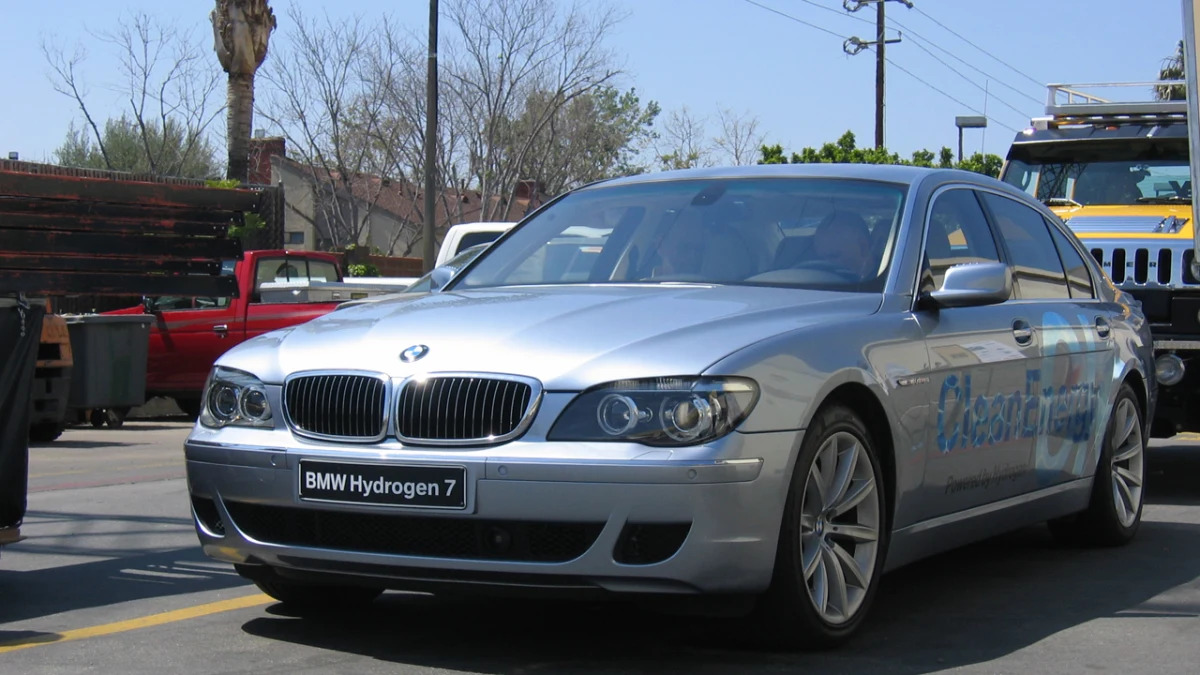The car most drivers associate with being green is a hybrid, and BMW doesn't offer any of those (and they probably won't any time soon). Still, that doesn't mean BMW isn't a green company, as a study done by the Berlin Institute for Future Studies and Technology Evaluation (IZT) found.
IZT compared 28 German companies, and BMW Group came out on top for being "the most efficient in using its financial, ecological and social resources. In terms of sustainability, the BMW Group manages its resources five times better than the German economy."
The green goings on in Bimmer-land include reducing energy by, for example, recovering heat from exhaust air in factories, especially the showcase green plant in Spartanburg. That plant gets "obtains around 63 percent of its energy from methane gas from a landfill site nearby, which allowed it to reduce its CO2 emissions in 2006 by 53,593 tonnes." You can more details after the jump in the proud release BMW sent out.
Green or now, BMW still made the Hydrogen 7, so there's room for improvement.
IZT compared 28 German companies, and BMW Group came out on top for being "the most efficient in using its financial, ecological and social resources. In terms of sustainability, the BMW Group manages its resources five times better than the German economy."
The green goings on in Bimmer-land include reducing energy by, for example, recovering heat from exhaust air in factories, especially the showcase green plant in Spartanburg. That plant gets "obtains around 63 percent of its energy from methane gas from a landfill site nearby, which allowed it to reduce its CO2 emissions in 2006 by 53,593 tonnes." You can more details after the jump in the proud release BMW sent out.
Green or now, BMW still made the Hydrogen 7, so there's room for improvement.
[Source: BMW]
BMW GROUP PIONEER IN SUSTAINABLE MANAGEMENT
Protection of resources firmly anchored in production strategy
Munich. According to a study among 28 German companies, the BMW Group is the most efficient in using its financial, ecological and social resources. In terms of sustainability, the BMW Group manages its resources five times better than the German economy, according to a study carried out by the Berlin Institute for Future Studies and Technology Evaluation (IZT). The study focused on ten economic, ecological and social indicators, such as the use of capital, water consumption, the volume of waste produced and the number of accidents at work, and compared the resource efficiency of each company with the resource efficiency of the market.
The efficient, ecologically sound use of resources has been standard in the BMW Group production network for years. Back in 1973, BMW was the world's first automobile manufacturer to create the function of Environmental Protection, with wide-ranging responsibilities across the board. With the signature of the United Nations Cleaner Production Declaration in 2001, the company once again confirmed its commitment to preventive, integrated environmental protection.
Uniform standards throughout the world
At all sites, environmental management systems which go way beyond the statutory requirements guarantee environmental protection at operating level. In 1999 the BMW Group was the first automobile manufacturer worldwide to certify all its production sites uniformly in accordance with the international environmental management standard ISO 14001.
Environmentally friendly painting technologies
The BMW Group is committed to powder clear coat technology. This technology requires neither water nor solvents. The BMW Group introduced the first powder clear coat line in 1997 in the Dingolfing plant, and the production sites in Regensburg and Leipzig are now also equipped with this technology. In addition, the use of water-based paint is standard at all production locations. The result of these efforts is that within the last ten years, the BMW Group has reduced the quantity of solvents used in the company by 50 percent.
Continuous reduction in energy consumption
Over the last ten years, the BMW Group has reduced its energy consumption by 26 percent and the emission of CO2 by 24 percent per produced vehicle. This has been achieved through a number of innovative technologies and projects:
- Heat wheels in the building ventilation systems in the BMW Group plants recover the heat from the exhaust air. This reduces the energy required for heating a production hall by up to 70 percent.
- The BMW plant in Spartanburg, USA, obtains around 63 percent of its energy from methane gas from a landfill site nearby, which allowed it to reduce its CO2 emissions in 2006 by 53,593 tonnes.
- Parts of the BMW Group Research and Innovation Centre in Munich are cooled by groundwater near the surface from drains for the underground railway. This groundwater cooling system has largely replaced conventional refrigerating machines. This avoids the emission of up to 5,000 tonnes of CO2 per year and saves about eight million kilowatt hours of electricity, which is equivalent to the annual consumption of over 3,000 private households in Munich.
Water cycles closed, waste water significantly reduced
At all of its sites, the BMW Group is achieving water savings using innovative, cyclically operated systems. The BMW engine plant in Steyr goes a step further with the application of a new process and waste water concept. Through the innovative combination of various membrane technologies, all the process water in the plant is treated and fed back into the production system. The result: Around 30 million litres of water are saved every year.
In the total production network, the BMW Group has reduced its water consumption per manufactured vehicle by 47 percent since 1996.
Further information on the study of the Berlin Institute for Future Studies and Technology Evaluation (IZT) at www.sustainablevalue.de
Further information on sustainability in the BMW Group at www.bmwgroup.com/responsibility



Sign in to post
Please sign in to leave a comment.
Continue